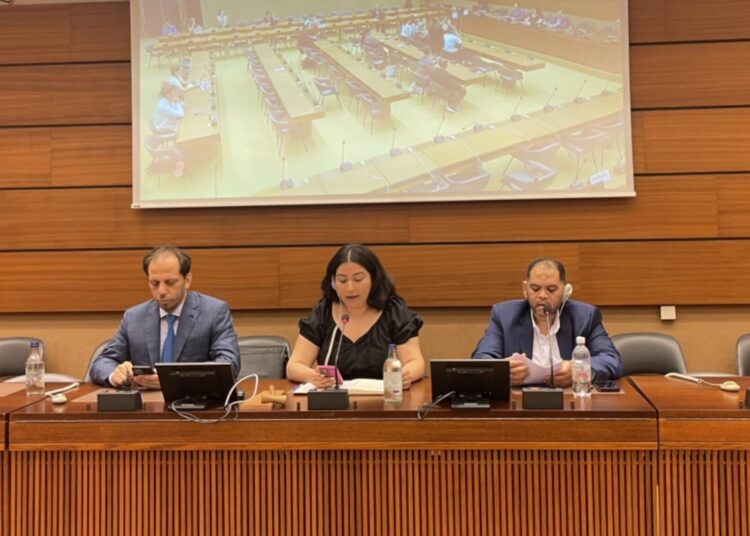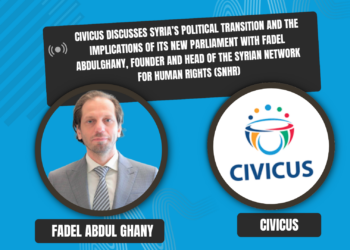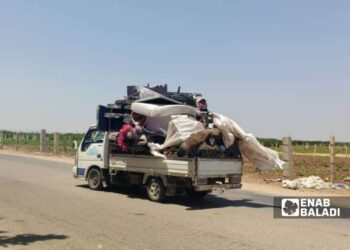Geneva – 4 July 2025
The Palestinian Return Centre (PRC), in cooperation with the Action Group for Palestinians of Syria (AGPS), held a special side event on the margins of the 59th session of the United Nations Human Rights Council in Geneva. The event, titled “Enforced Disappearances in Syria: Challenges for Transitional Justice,” took place on Friday, 4 July 2025, at the Palais des Nations.
The event aimed to shed light on the systematic practice of enforced disappearance perpetrated by Syrian authorities over the past years and the obstacles hindering transitional justice processes—particularly with regard to Palestinian refugees in Syria, who continue to face double marginalisation within existing legal and humanitarian frameworks.
Dr. Fadel Abdulghany: 177,000 Missing and Justice at Risk
In his intervention, Dr. Fadel Abdulghany, Executive Director of the Syrian Network for Human Rights, addressed three key areas: the scale of the crisis, the post-conflict landscape in areas no longer under regime control, and the responsibilities of the new authorities with regard to transitional justice.
He noted that the network has documented over 177,000 cases of enforced disappearance and arbitrary detention since the beginning of the Syrian conflict—most of them carried out by the Assad regime. He stressed that an estimated 85–90% of detainees are forcibly disappeared, with no information available to their families, particularly in security branches where detainees are held in complete secrecy.
Abdulghany presented compelling evidence, including official death certificates obtained from civil registry offices with the help of cooperating employees, which show that many detainees were registered as deceased by authorities without notifying their families.
He also revealed that only around 20,000 individuals were released after regime forces withdrew from certain areas, leaving the fate of at least 134,000 detainees unknown. Most are believed to have died under torture or been summarily executed. He described these figures as “horrifying truths” that demand serious and honest engagement with victims’ families.
Abdulghany warned that transitional justice efforts in Syria remain fragmented and lack proper legal and institutional frameworks. He criticised the creation of two separate bodies—one for transitional justice and another for missing persons—without a unified legal foundation, arguing that such fragmentation weakens the effectiveness of the process.
He called for a unified transitional justice path, anchored in legislation passed by an independent legislative authority. This path, he said, must include genuine participation from civil society, victims, and both national and international experts, including relevant UN bodies such as the International Commission of Inquiry, the Office of the High Commissioner for Human Rights, the International, Impartial and Independent Mechanism (IIIM), and the International Commission on Missing Persons (ICMP).



